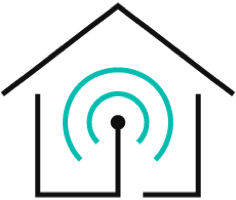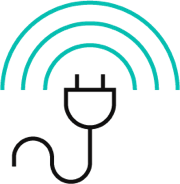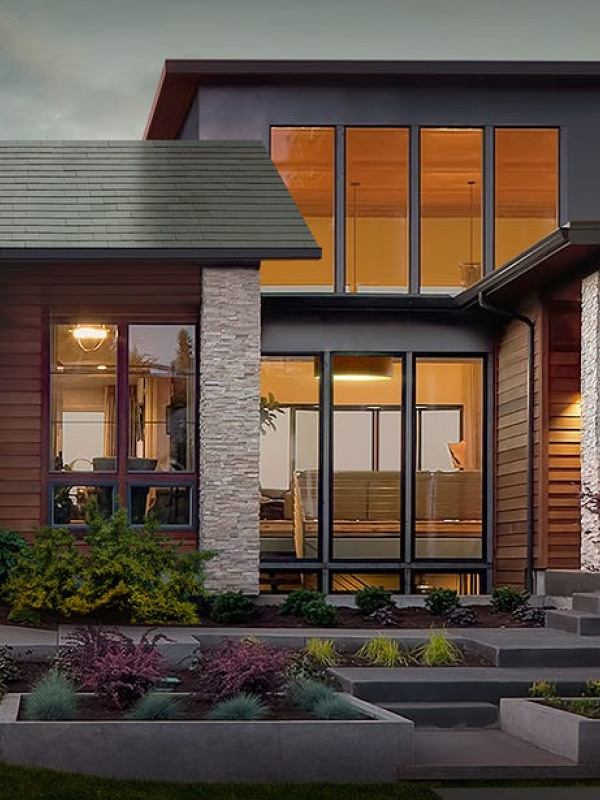To save electricity costs or create a home backup power system, you must determine how much energy your household uses.
It's a lot simpler than it seems. Simple math operations and examining your previous electricity bills are needed to determine how many watts are needed to run your home.
You might be shocked to see how much electricity you and your family use daily or monthly once you start. So how many watts are required to run your house?
In this blog, we will answer that question, along with the factors that affect those numbers, and suggest solutions to keep your utility bills low through vigorous monitoring of power consumption.
EVVR is your trusted partner to stay on top of the energy utilized in your home through EVVR Energy Monitoring Smart Plug & Relay. We also have a complete range of smart home products and services to make your living better and more efficient!
- Determining Average Wattage To Run A House
- Number of Watts Used By An Average Home
- Factors That Influence Power Consumption In Your Home
- Appliances That Use The Most Wattage In Your Home
- EVVR Energy Monitoring Smart Plug & Relay Helps You Optimize Power Consumption
Determining Average Wattage To Run A House
Kilowatt-hours (kWh) are commonly used to measure how much energy we use; one kWh equals 1,000 watts operating for one hour. The total electricity used worldwide 2001 was 13.9 trillion kilowatt-hours (kWh). Twenty-five percent (3.45 trillion kWh) of the 13.9 trillion billion kWh used globally to power electrical devices were used in the US. And 1.14 trillion of those 3.45 trillion kWh were consumed in homes. That is more electricity used to power households in the United States than is used by the commercial or industrial sectors combined (more than 30%).
Why does the residential sector consume such a large amount of energy? Simple: Appliances in homes use a ton of energy. One kWh of electricity is consumed every hour when a 1,000-watt device is left on. Now consider every appliance, big and little, that you have in your house.
The efficiency of several appliances has significantly improved during the past 30 years. A refrigerator made in 1979 used between 120 and 300 kWh per month; a unit made after 2001 used between 31 to 64 kWh per month. However, refrigerators continue to be a significant energy consumer. They are not alone either.
Small appliances use more watts than refrigerators, including toasters, hair dryers, coffee makers, vacuum cleaners, and curling irons. Ranges and dishwashers also use a lot of watts to produce heat (you've noticed a trend). These high-wattage devices, however, are typically used briefly. Thus, their energy consumption is lower than that of a device that consumes fewer watts but operates continuously, such as a refrigerator or a water heater.

Number of Watts Used By An Average Home
According to estimates, the typical American home uses 10,632 kilowatt-hours (kWh) of energy annually. That equates to 29,130 watts (W) daily, which may be divided by 24 to yield an average of 1,214 W needed to power a home all day. Notably, your home's wattage needs might fluctuate greatly depending on the time of day and where you live, from several thousand watts at one moment to only a few hundred watts at another.
The most convenient way for homeowners to gauge power consumption is the EVVR Energy Monitoring Smart Plug & Relay. It is a nifty device that can turn your dumb appliances into smart ones by giving you remote control over energy consumption.
Consider all the devices you might use during the day. For example, when you wake up in the morning, you might turn on your toaster and coffee machine. Your air conditioning unit can start operating as the day wears on and the temperature rises. You might start a load of laundry and cook dinner while your stove or microwave is on later in the day. You may take a warm shower at night thanks to your electric water heater. Your home will likely consume the least energy of the day by the time you sleep.
Factors That Influence Power Consumption In Your Home
There is no straightforward formula to determine how many watts of power a residence might require because electrical usage varies widely. The number and kind of appliances in your home, the size of your house, and the location where you reside all affect the total wattage.
Number & Type of Appliances
You'll need more watts if you have more appliances, but your kind of appliances might also affect how much electricity you use. How many watts does a specific appliance need to start? What is the running wattage? Additionally, adopting Energy Star-rated equipment will help you use less energy overall, especially for power-hungry appliances like refrigerators, air conditioners, and dryers.

Size of Your House & Household
A home's square footage greatly impacts how much power is used.
Your home will consume more electricity to heat and cool the more rooms it has.
A larger home will also likely have more lighting and more equipment users.
It may seem simple, but a household uses more energy the more people there reside there.
Think about the following:
- Your water heater uses more electricity when more people take hot baths and showers.
- Major appliances like refrigerators, dishwashers, and washers will be utilized more frequently.
- The amount of lighting and HVAC required will go up.
Your Home’s Age & Condition
Before energy-efficient appliances and building materials were widely used, homes constructed in the past used more energy than current homes.
Better insulation, more effective HVAC systems, and Energy Star-certified appliances all contribute to the energy efficiency of newer homes.
Your Home’s Vicinity
The location of your house has a big impact on how much energy you use.
If you reside in a warm environment, air conditioning may be a year-round or daily requirement.
Similarly, individuals in cold climates must keep their heating systems on to survive.
The cost of energy locally can also affect how much electricity is used. Those living at higher energy costs tend to use less energy overall.
Frequency of Appliance Usage
The watts needed to run your home depend largely on your family's habits and appliance usage.
Your home's temperature, for instance, will impact how much energy you use.
If you want to keep your house warm in the winter or cool in the summer, you'll use more energy.
Your household's use of televisions, laptops, and washing machines will impact your energy consumption.
The amount of power used per hour typically varies throughout the day, with most families' on-peak times coming between 7:00 AM and 11:00 PM on weekdays.
No matter the factors and their influence on your appliance usage, you can get a clear picture of what and how much power they are drawing by connecting each one with EVVR Energy Monitoring Smart Plug & Relay. The setup is simple and takes no more than a couple of minutes. So, what are you waiting for?
Appliances That Use The Most Wattage In Your Home
Deep Freezers
Separate freezers are the next most-used kitchen appliance in American households after refrigerators. The monthly energy usage is within the 30-200 kWh range.
The issue with energy ratings for any specific device is this: The range is enormous. Many people still use thousands of kWh a year because they still have refrigerators from the 1980s (or earlier). Your annual consumption may be closer to 400 kWh if you have a brand-new, high-efficiency machine. The additional aspects are the model size, freezer orientation (bottom freezers are more efficient), temperature settings, device placement, refrigeration practices, and any possible energy-saving modes.
Water Heater
The US Department of Energy estimates that 12 percent of the energy used in US homes is heating water. The water heater serves various purposes daily, including taking showers, washing dishes, and laundering clothes. And with a typical monthly use of 400 kWh, it also uses much power.
Of course, how much energy you use for hot water depends on a variety of things, such as the size, type (standard, solar, tankless), and temperature of your water heater, how long you take a shower, and whether you wash your clothes in hot or cold water.
Cooling System
In the United States, central air conditioning was installed in only 27% of households in 1980; by 2001, that percentage had increased to 55%. Most home energy use is attributed to air conditioning, which frequently uses powerful devices for extended periods.
As is customary, the type of unit, its capacity, how long it runs, and its efficiency rating all significantly impact the actual watts used to cool a home. The monthly energy consumption of an air conditioner might range from 200 to 1,800 kWh.
HVAC Systems
One of the most energy-hungry household appliances is a heating system. It might also be the most important one.
If you live in a chilly climate, you've undoubtedly been surprised by your heating bill more than once. The kWh range for heating devices is incredibly wide, ranging from a meager 100 kWh per month to a startling 3,500 kWh/month. Everything relies on the kind of heat you utilize and how effective your specific model is.
EVVR Energy Monitoring Smart Plug & Relay Helps You Optimize Power Consumption
When it comes to power saving around your house, it is necessary to determine how much energy your appliances consume and how to optimize that. EVVR Energy Monitoring Smart Plug & Relay is your trusted partner for doing two important things: it lets users turn on and off their device remotely and let them know how much power that appliance is drawing. Whether you have a smart home, you can get the best of smart living by merely incorporating this device. So, what are you waiting for?

















